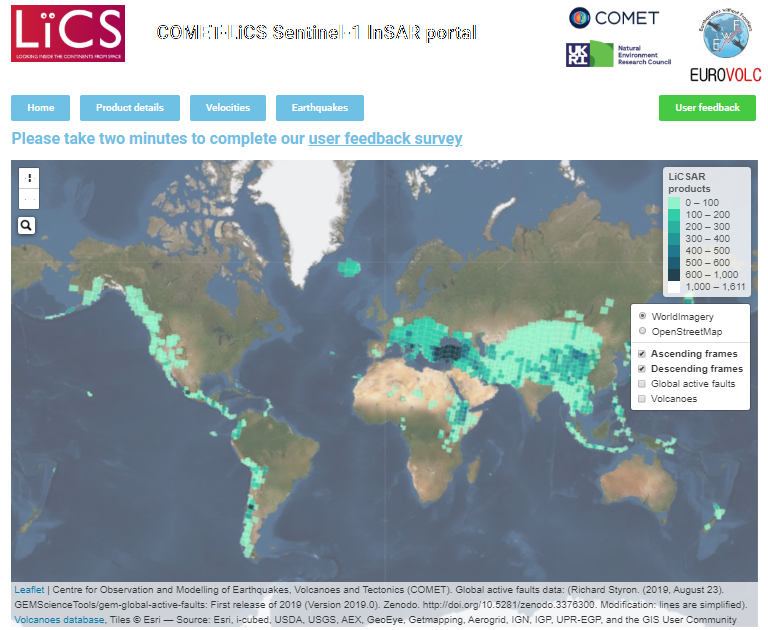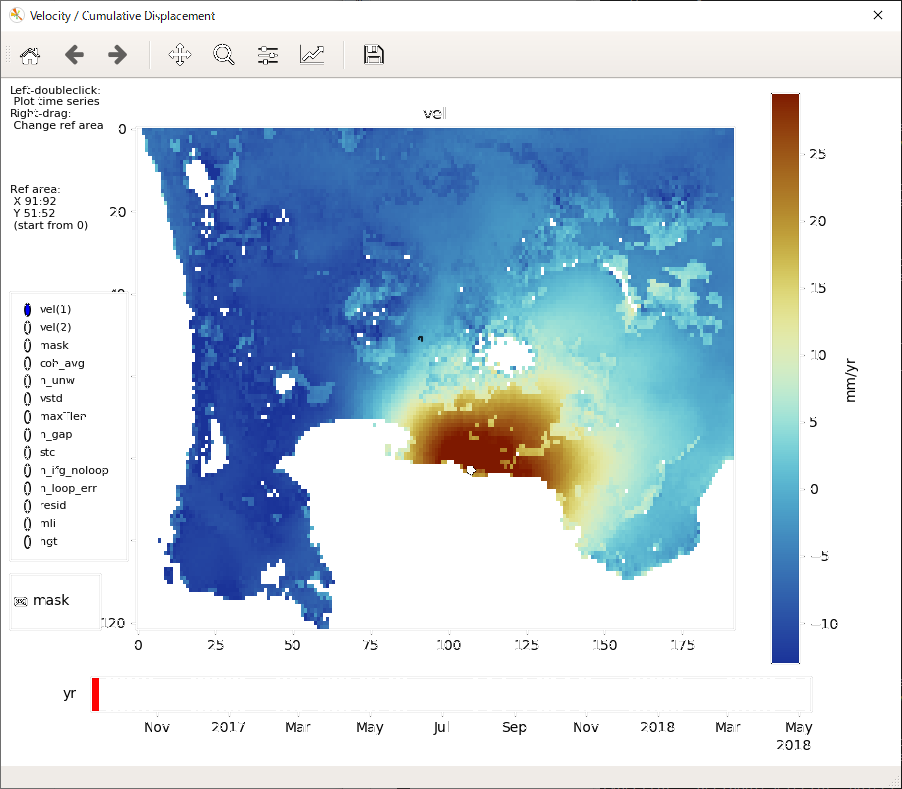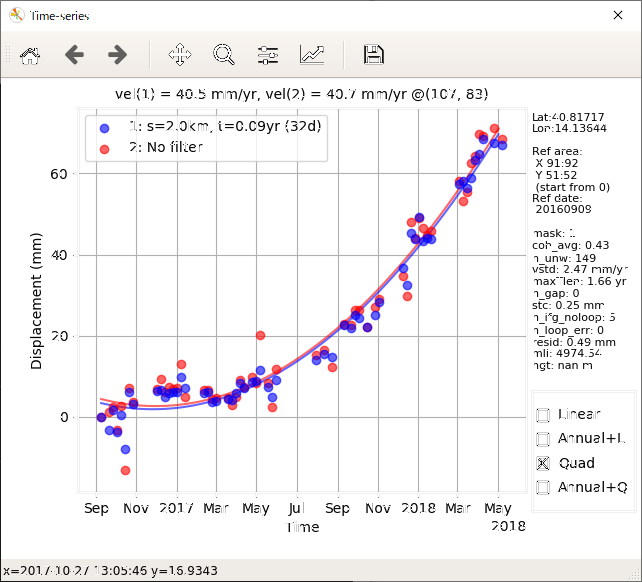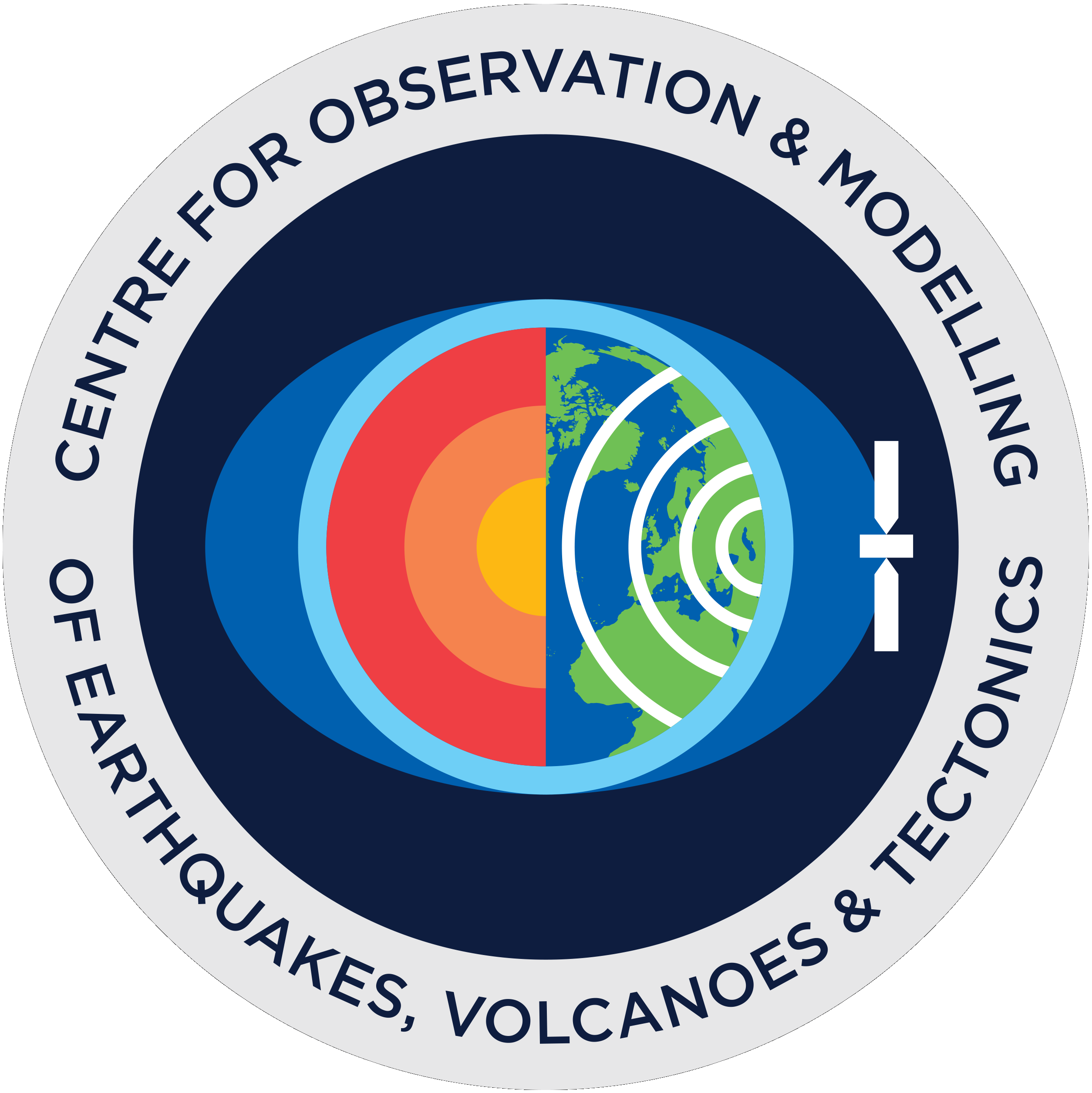LiCSBAS is an open-source package in Python and bash to conduct InSAR time series analysis using LiCSAR products (i.e., unwrapped interferograms and coherence) which are freely available on COMET-LiCS web.
Users can easily derive the time series and velocity of the displacement if sufficient LiCSAR products are available for the area of interest. LiCSBAS also contains visualization tools to interactively display the time series of displacement to help investigation and interpretation of the results.
THIS IS RESEARCH CODE PROVIDED TO YOU "AS IS" WITH NO WARRANTIES OF CORRECTNESS. USE AT YOUR OWN RISK.
See the wiki pages and quick start.
-
Frame ID: 124D_04855_131313 (Italy)
-
Time: 2016/09/09-2018/05/08 (~1.7 years, ~60 images, ~170 interferograms)
-
Clipped around Campi Flegrei (14.03/14.22/40.78/40.90)
-
Tutorial: LiCSBAS_sample_CF.pdf (1.3MB)
-
Sample batch script: batch_LiCSBAS_sample_CF.sh
-
Sample results: LiCSBAS_sample_CF.tar.gz (33MB)
Morishita, Y.; Lazecky, M.; Wright, T.J.; Weiss, J.R.; Elliott, J.R.; Hooper, A. LiCSBAS: An Open-Source InSAR Time Series Analysis Package Integrated with the LiCSAR Automated Sentinel-1 InSAR Processor. Remote Sens. 2020, 12, 424, https://doi.org/10.3390/RS12030424.
This work has been accomplished during Y. Morishita’s visit at University of Leeds, funded by JSPS Overseas Research Fellowship. COMET is the UK Natural Environment Research Council's Centre for the Observation and Modelling of Earthquakes, Volcanoes and Tectonics. LiCSAR is developed as part of the NERC large grant, "Looking inside the continents from Space" (NE/K010867/1)
Yu Morishita (PhD)
JSPS Overseas Research Fellow (June 2018-June 2020)
Visiting Researcher, COMET, School of Earth and Environment, University of Leeds (June 2018-June 2020)
Chief Researcher, Geography and Crustal Dynamics Research Center, Geospatial Information Authority of Japan (GSI)






